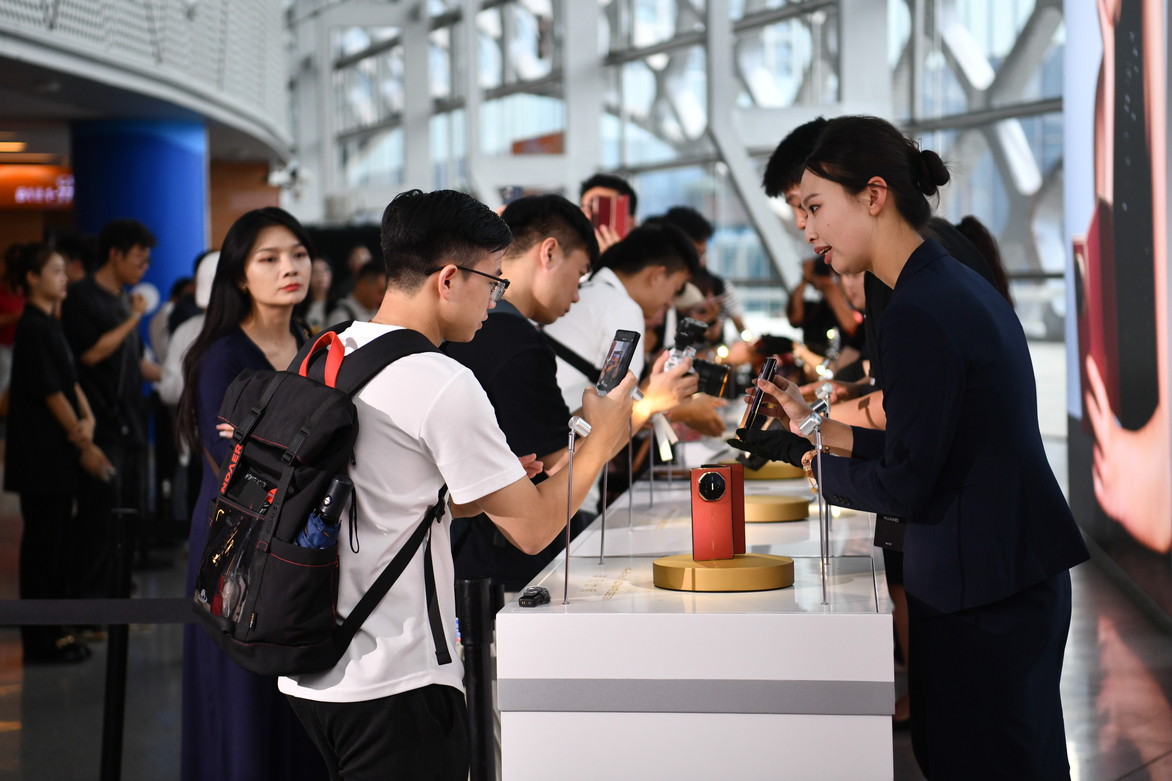Smartphones shed light on depression detection
Xinhua
03 Apr 2025

People try out Huawei smartphones in Shenzhen, south China's Guangdong Province, Sept. 10, 2024. (Xinhua/Liang Xu)LANZHOU, April 3 (Xinhua) -- Smartphones have the potential to aid depression detection through digital phenotyping and feature extraction by utilizing the massive data they collect, according to Chinese scientists at Lanzhou University.This has particular significance and potential for modern people suffering from high stress as smartphones can timely sense people's mental and physical conditions, according to their study newly published in the journal Proceedings of the IEEE.The large amount of data generated by smartphones can continuously track users' mental state, with multiple advantages such as universality and objectivity, according to Yang Minqiang, associate professor of the School of Information Science and Engineering of Lanzhou University."Smartphones can help realize the timely identification of psychological disorders such as depression and anxiety," added Yang.Smartphones contain a wealth of sensors, such as GPS, gyroscope, microphone, ambient light sensor and more. These sensors can help record people's movement, social interactions, sleep, rhythm and other behavioral states, and can be used to identify and track psychological disorders.Notably, smartphones have been widely used as portable data collectors for wearable and healthcare sensors that can passively collect data streams related to the environment, health status and behavior.Recent research shows that the collected data can be used to monitor not only the physical states but also the mental health of individuals. However, extracting the features of digital phenotypes that characterize major depressive disorder (MDD) is technically challenging and may raise significant privacy concerns.This study carried out a comprehensive analysis of several key issues related to ubiquitous sensing for use in detecting MDD, according to Yang.Researchers specifically analyzed existing methodologies and feature extraction algorithms used to detect MDD through digital phenotyping from smartphone data.They summarized and explained five types of features of smartphone data, namely, location, movement, rhythm, sleep, and social and device usage.These data record the patterns of an individual's daily activities, including social interactions and mobile phone usage. Despite its limitations, this study opens the door for further research and engineering exploration of smartphone data, according to Yang."Early identification could help early intervention on depression. We anticipate that smartphone manufacturers could realize smartphone-based mental health diagnosis and treatment, all while protecting user privacy," Yang said.
